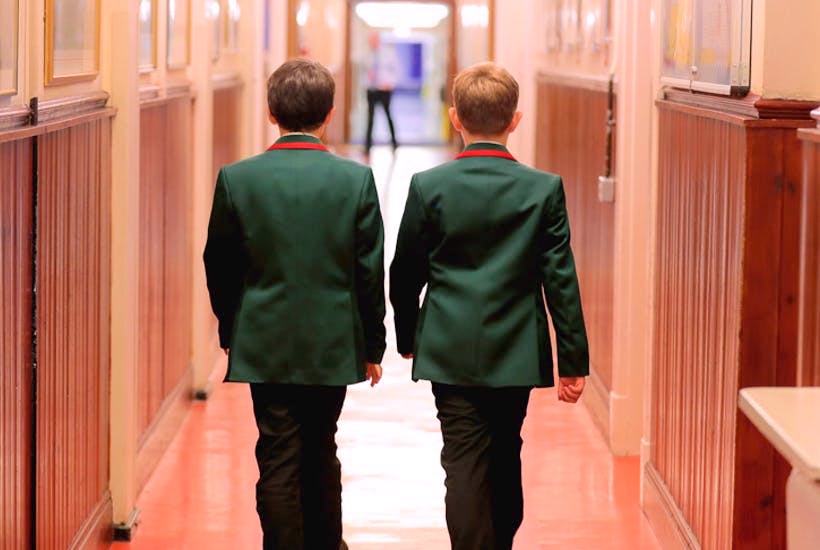The yearly scramble for school places is about to start and, as all British parents know, trying to find a school for your children can be an all-consuming business. When searching for a decent state primary for my own children, I was faced with intense competition for places in London along with soaring house prices. So I did what plenty of other middle class parents have done before me and moved out of the capital. For better or worse, my children’s education has dictated everything: from where I live to my choice of career. On this week’s Spectator podcast, Leah Mclaren takes issue with mothers like me. Isn’t the British obsession with schooling all about status anxiety and paranoia about our children’s life chances, she asks. Can’t they just talk about something else instead?
But middle-class parents these days face an impossible challenge: they are stretched to the hilt trying to bring in two incomes in an attempt to afford houses in the catchment areas of decent schools. Private education is too expensive and has been for some years. House prices continue to distance them from most decent-sized family homes within reach of London. So no wonder that it seems as though all some parents talk about is schooling; it is the reason behind everything they do.
Mclaren also calls out the camaraderie often found between parents at the school gate as parochial and says that in other countries there is no expectation of being friends with other parents. But again, this has political as well as social motivations: with schools across the country facing a crisis in funding as the government diverts more of its spending towards the NHS, parents increasingly have a vital role to play in fundraising for schools. Without the efforts of the parent-teacher association at my children’s school, for instance, the pupils wouldn’t even have working computers to use.
Mclaren is right that the neighbourliness at the school gate is a peculiarly British quality. But it is a quality that we should value, particularly because it is increasingly under threat. Roger Scruton argues in his book on the state of Britain now that we have forgotten the value of the people right in front of us in our rush to maintain a vast network of online friendships with those who are geographically far away. He’s right. And the school gate provides just such an obvious support network: whether it is helping source a cow costume for the school nativity or baby-sitting for each other, the mothers I know rely on each other in countless ways. Do I need to ask other people for help with these things? No – I could easily retreat into my own Google-powered sphere of self-sufficiency. But where is the fun in that? Life is more enjoyable when lived together.
As far as my children are concerned, they are benefiting from so much more than a gleaming Ofsted report: their small village school is at the heart of the local community. Through school they do everything from visit the elderly in the village to helping lay a new path in the woods. It is easy to dismiss such tiny efforts to make the world a better place. But it teaches my children to play their part in society and pay attention to the people around them. My choice of school was worth the worry but not for the reasons you might expect: you won’t find its name on any national league table but what you will find is plenty of community and kindness.







Comments